Search
Search Results
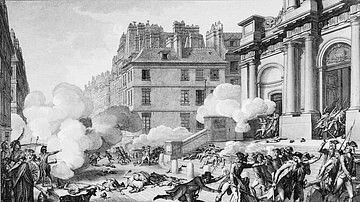
Image
Battle of the Saint-Roch Church during the Revolt of 13 Vendémiaire Year IV
Revolt of 13 Vendémiaire Year IV (5 October 1795), the battle between royalist insurrectionists and French Republican soldiers under General Napoleon Bonaparte is taken to the Saint-Roch church. Image by Charles Monnet.

Image
Saint-Just and Robespierre at the Hôtel de Ville, on the night of 9 Thermidor Year II
Maximilien Robespierre, Louis Antoine Saint-Just, Georges Couthon, and their allies take shelter at the Hôtel de Ville in Paris on the night of 9-10 Thermidor Year II (27-28 July 1794), where they plot an insurrection against the National...
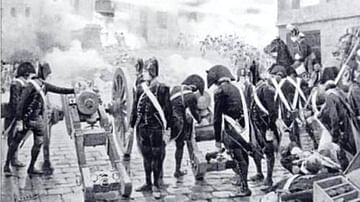
Image
Bonaparte's Guns Fire on the Royalist Mob, 13 Vendémiaire Year IV
General Napoleon Bonaparte's guns fire into a mob of royalist insurrectionists during the Revolt of 13 Vendémiaire Year IV (5 October 1795), the famous "whiff of grapeshot". Drawing by Felician Myrbach, 19th century.
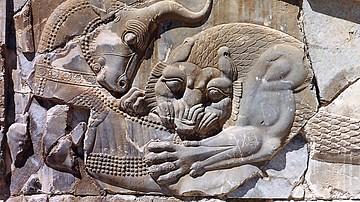
Image
New Year's Image, Persepolis
New Year's Image, Persepolis
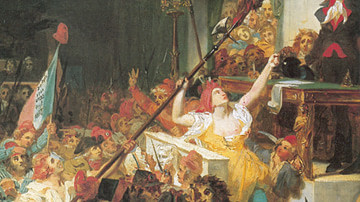
Image
Prairial Uprising of Year III
Uprising of 1 Prairial Year III (20 May 1795) against the policies of the Thermidorian Reaction during the later stages of the French Revolution (1789-1799). Here, the insurrectionists wave the severed head of Jean-Bertrand Féraud in the...
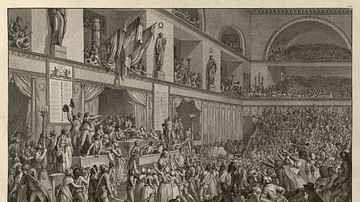
Image
Insurrection on 1 Prairial Year III
Insurrection on 1 Prairial Year III (20 May 1795), engraving by Isidore Stanislas Helman and Jean Duplessis-Bertaux after Charles Monnet, 1796.
National Library of France, Paris.
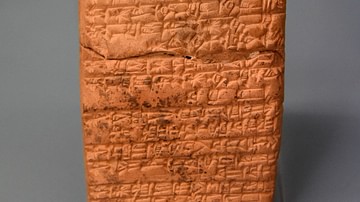
Image
Year Formulae of King Shulgi of Ur
Terracotta tablet listing the year formulae of King Shulgi of Ur. From Southern Mesopotamia, modern-day Iraq, Ur III period, 2094-2047 BCE.
Ancient Orient Museum, Istanbul.
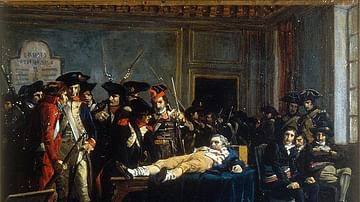
Image
Morning of 10 Thermidor Year II
The Morning of 10 Thermidor Year II depicts a wounded Maximilien Robespierre on the last morning of his life, jaw shattered, lying on the centered table. He and his allies would be executed later that day. Oil on canvas by Lucien-Étienne...

Definition
Chinese Emperor
The emperors of ancient China had tremendous power and responsibility. Called the 'Son of Heaven', he (and once she) was given a divine right to rule over all people but was expected to promote their best interest and not his own. An absolute...

Image
Four Coffins of the Victims of the Boston Massacre
A newspaper clipping from the Boston Gazette reporting on the funeral of four of the victims of the Boston Massacre, represented by an image of four coffins, each bearing the initials of a victim. These names from left to right include: Samuel...